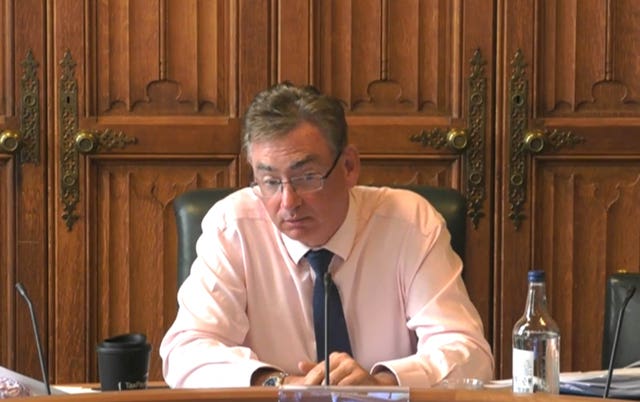Broadcasting rules for sport’s ‘crown jewels’ set for reform
The Government has published a White Paper to ensure viewers can watch major events on free-to-air digital and on-demand services.

The rules governing how sport’s “crown jewels” like the Olympic Games and football’s World Cup can be viewed in the UK are set to be reformed.
The Government has published a White Paper indicating its intention to bring the listed events regime into the 21st century and ensure viewers can continue to watch major events on free-to-air digital and on-demand services.
The BBC’s coverage of the Tokyo Olympics last summer faced criticism. In contrast to its offering for the 2012 and 2016 Games, coverage in 2021 was limited under the terms of a sub-licensing agreement with Discovery.
The BBC could only show two live Olympic events at any one time – one on television and a second through a red button service and online, with everything else on Eurosport or Discovery+.

The corporation’s director of sport, Barbara Slater, called last year for the listed events regime, based on the 1996 Broadcasting Act, to be reformed, and the Government has now announced its intention to modernise the legislation to better reflect the current media landscape.
It says it will look to make qualification to screen Group A events – which also include the men’s and women’s football World Cups and Euros, the Wimbledon singles finals and the Grand National – a benefit specific to free-to-air public service broadcasters (PSBs), namely the BBC, ITV, Channel 4 and Channel 5.
Currently, qualification requires that a service is free to view and accessible to 95% of the UK. All services that currently qualify are operated by the free-to-air terrestrial PSBs.
However, the Government acknowledges that in 1996 the competition facing them was “limited”, whereas viewing habits are changing rapidly and PSBs are competing for rights with global media platforms.
The Government will also review the scope of the listed events regime, to see if it should be extended to include digital rights to “ensure that the public can view these sporting events of national significance free on digital platforms”.
“Digital rights, including on-demand rights, are now an important element in the sale of sports rights but they are not covered by the listed events regime – raising questions about its relevance,” a Government release read.
“If, for example, the Olympic 100m final was broadcast live in the middle of the night on the BBC but all streaming and catch-up rights were sold to a different broadcaster and kept behind a paywall, a culturally relevant event might not be available to a wide audience on a free-to-air basis.”
The Paralympic Games were added to Group A of the listed events schedule in 2020, with the women’s football World Cup and Euros added earlier this week.

DCMS committee chairman Julian Knight said: “The rules ensuring major sporting events are free to be enjoyed by all have failed to keep pace with rapid changes in audience viewing habits.
“With many more people now watching online or on catch-up rather than crowding round a TV with friends and family, the Government must ensure that the promised review of the listed events regime extends protection of the sporting crown jewels to digital and on-demand content.
“There is also now a perfect opportunity to expand the list of protected events to include more long-established centrepieces of our national sporting heritage, such as the Six Nations Rugby Championship.
“With the proposals announced today aimed at helping public service broadcasters thrive, it is puzzling why there is a deafening silence on the role of radio and how it will be supported.
“This will need to be rectified if, as promised, audiences are to enjoy a new golden age of programming.”





